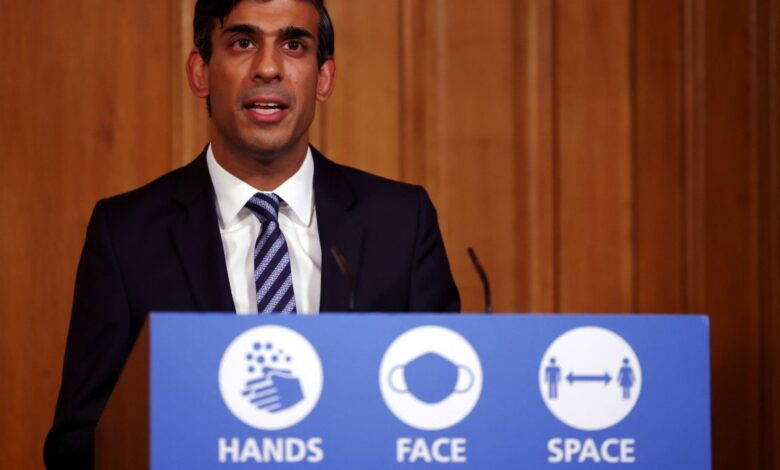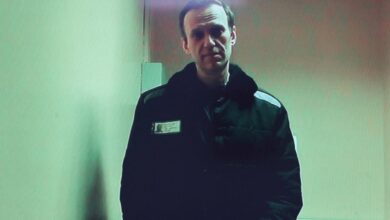Challenging dilemmas awaiting Rishi Sunak in advance of Covid inquiry appearance

Prime Minister Rishi Sunak will give evidence to the Covid inquiry on Monday, where he will face intense questioning over his decisions as Chancellor during the pandemic. His time as head of the Treasury, from 13 February 2020 to 5 July 2022, will come under scrutiny as he is expected to focus on the public health implications of the measures he implemented. The inquiry will delve into the controversial Eat Out To Help Out scheme, his views on coronavirus restrictions, and the support provided for low-income workers.
What scientific advice did he take over Eat Out To Help Out?
One of the key points of interest in Mr. Sunak’s testimony will undoubtedly be the scientific advice he obtained before rolling out the Eat Out To Help Out scheme. There are lingering questions about whether he consulted with prominent figures such as Chief medical officer Professor Chris Whitty, former government chief scientific adviser Sir Patrick Vallance, former deputy chief medical officer Sir Jonathan Van-Tam, and former health secretary Matt Hancock before launching the scheme. The inquiry has revealed that none of these key figures were consulted or informed in advance about the scheme. However, in his written statement, Mr. Sunak defended the scheme by stating that neither Professor Whitty nor Sir Patrick raised any concerns about it. He is expected to argue that the scheme boosted the work prospects of women and ethnic minorities, aligning with Prime Minister Boris Johnson’s previous testimony on the matter.
Did Eat Out To Help Out drive up coronavirus rates?
Another crucial aspect that Mr. Sunak will have to address is the potential impact of the Eat Out To Help Out scheme on the spread of Covid-19. Testimonies from the inquiry, including that of Sir Patrick Vallance, have suggested that the scheme may have led to a second wave of Covid cases in the UK. There are also WhatsApp messages revealed during the inquiry, where Prof Dame Angela McLean referred to Mr. Sunak as “Dr Death the chancellor” in reference to the scheme. Additionally, there are indications that senior Government officials were aware of the scheme’s role in spreading infections but chose to suppress this information from the public. Text messages from Mr. Hancock also reportedly expressed concerns about the scheme causing problems and spreading infections, indicating potential awareness within the government about its detrimental effects.
Could he have done more to support low-income workers?
Support for low-income workers is another area that Mr. Sunak will be tasked to explain. The inquiry has revealed instances where the then-Chancellor rejected advice from Prof. Whitty on the importance of providing financial support for people self-isolating to limit the spread of the virus. There are diary entries from Sir Patrick Vallance indicating that Mr. Sunak was blocking the notion of paying to encourage people to self-isolate, despite evidence suggesting its necessity. Additionally, Mr. Hancock has expressed his belief that the UK’s statutory sick pay rates are far too low, putting pressure on individuals to go to work when they are ill. These issues will likely be raised during Mr. Sunak’s testimony, with a focus on his decisions and the potential impact on public health.
Was he opposed to lockdown restrictions?
Mr. Sunak’s stance on lockdown restrictions will also come under scrutiny, particularly after his comments in an interview where he appeared skeptical of lockdowns. He expressed concerns about scientists being too “empowered” during the pandemic and creating a “fear narrative”. Additionally, there are diary entries by Sir Patrick Vallance suggesting that Mr. Sunak pushed for a faster and fuller opening up, advocating for the removal of all restrictions. These statements and actions will be probed to understand Mr. Sunak’s approach to imposing and lifting coronavirus restrictions and the potential implications of his views.
What happened to his WhatsApp messages?
The inquiry may also delve into the missing WhatsApp messages from Mr. Sunak, mirroring similar scrutiny faced by the former Prime Minister, Boris Johnson. Mr. Sunak has stated that he no longer has access to the WhatsApp messages exchanged during the relevant time due to changing phones. This may raise questions about the preservation of crucial information and whether adequate measures were taken to retain key messages. The missing communication may be a point of contention during Mr. Sunak’s testimony, as the inquiry seeks to address these gaps in the evidence.
Overall, Mr. Sunak’s appearance at the Covid inquiry will be a pivotal moment, shedding light on his actions as Chancellor and the potential effects of his decisions on public health during the pandemic. His testimony is set to provide insights into the controversial decisions made during a challenging period for the country, offering an opportunity to address critical questions and concerns. As the inquiry draws to a close, Mr. Sunak’s evidence will play a significant role in understanding the complexities of managing the pandemic and its implications on public health and the economy.
{{response without conclusion}}




